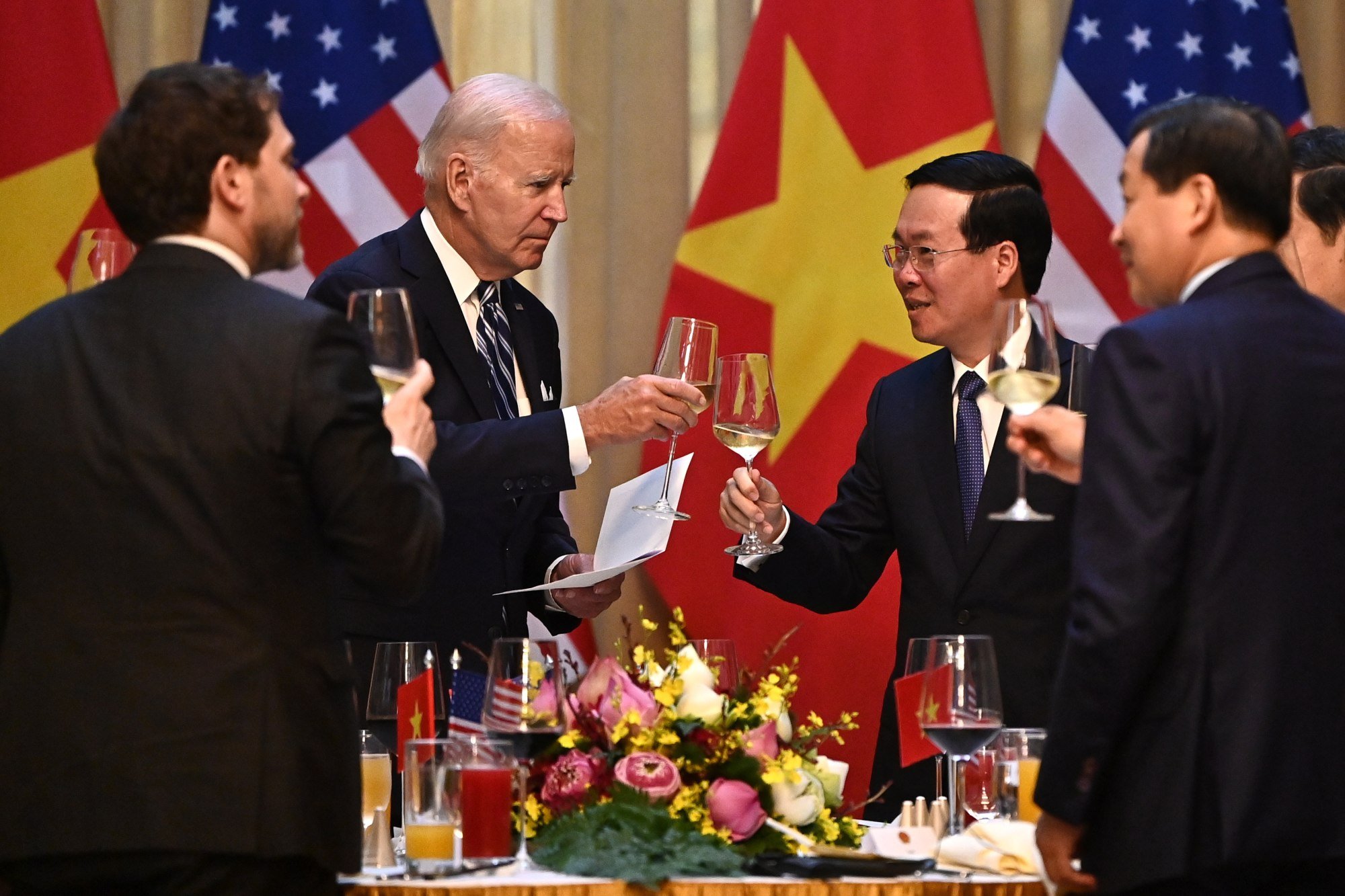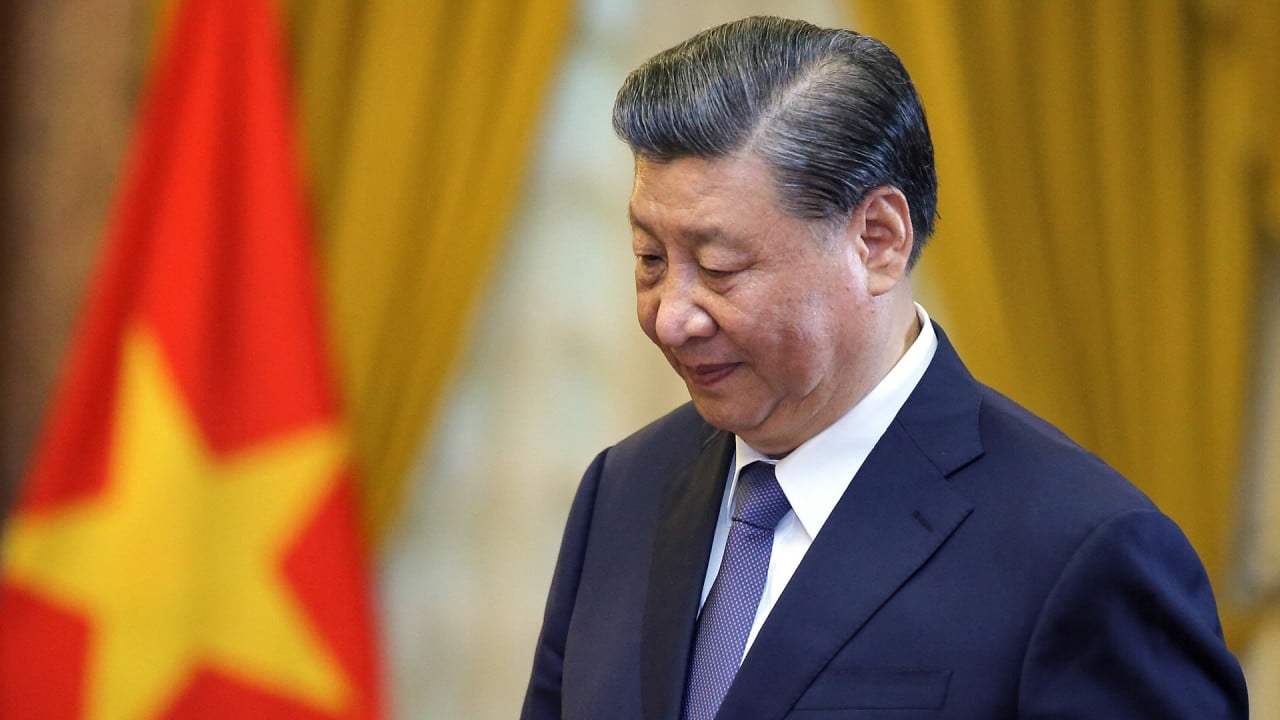According to Thayer, Vietnam's alliance with its powerful neighbor and the manifesto's commitment to building a „community with a shared future of strategic importance” could be considered „creating a virtue out of necessity.”
„Vietnam should maintain good, manageable relations with China due to their geographical proximity and economic interdependence,” he said.
Vietnam moves towards Belt and Road Initiative as Laos, Cambodia reap benefits
Vietnam moves towards Belt and Road Initiative as Laos, Cambodia reap benefits
The joint statement said the two countries agreed to increase cooperation in several areas, including security, economic issues, construction of a cross-border rail link and joint patrolling between their defense ministries in the Gulf of Tonkin.
Despite the ongoing conflict between the two countries in the South China Sea, their economies depend on each other for Vietnam's exports, which are made using parts made in China.
Nguyen Khac Giang, a visiting fellow at the ISEAS-Yusof Ishak Institute in Singapore, said the inclusion of the concept of „a community with a shared future” in the report does not necessarily elevate China above Vietnam's other allies.
„China's advantage lies in its close party-to-party relationship with Vietnam, which is a by-product of their ideological alignment. However, this dynamic has not changed significantly with the recent arrival of Xi Jinping,” Jiang said.
Communist parties of both countries share a common history of resistance against Western imperialism and foreign invaders. From 1946 to 1954, former Chinese leader Mao Zedong provided ideological, political, and material support to Vietnam. Chinese forces were also involved in Vietnam's war against the United States for several years in the 1960s.
Noting that Vietnam is one of the last Southeast Asian countries to partner with China on the concept of a „community with a shared future,” Jiang said Hanoi's initial reluctance may have stemmed from its desire not to align itself with China or the United States.
Therefore, accepting this concept could be a concession made by Hanoi in response to its recent diplomatic upgrades to a comprehensive strategic partnership with the US and Japan.
Derek Grossman, a senior defense analyst at Rand Corporation, said in the past year, Vietnam has formed three comprehensive strategic partnerships – with Japan, South Korea and the United States. This shows that Hanoi has „appreciated” the difference, Grossman said.
Xi's Vietnam trip focuses on rail link, rare earths amid rising US influence
Xi's Vietnam trip focuses on rail link, rare earths amid rising US influence
But Vietnam has not downgraded such partnerships, Thayer said. Instead, Hanoi has removed „long-standing rigidities” in its 2003 „cooperation and struggle” policy, which favored China, Russia and India over the United States, Japan, Australia and South Korea, he added.
Describing the comprehensive strategic partnership as the „pinnacle” of Vietnam's bilateral diplomatic relations, Jiang said the framework gives it greater flexibility to cooperate with its partners in any area and at any level.
„However, the practical extent of this cooperation depends on Vietnam's priorities and capabilities and prevailing international conditions,” he said.
Citing India as an example, Jiang said Vietnam's relationship with the South Asian country under the Comprehensive Strategic Partnership is not at the same level as China or the US.

Bich Tran, a postgraduate at the National University of Singapore's Lee Kuan Yew School of Public Policy, said it was difficult to compare comprehensive strategic partnerships between different countries because they emphasized different aspects, such as trade, investment or maritime security.
Vietnam has been flexible in scaling its partnerships in various sectors, such as arms distribution and defense.
One of the world's 20 largest arms buyers, Vietnam has an estimated annual budget of US$1 billion for arms imports, according to Global Data, a military procurement intelligence provider. Much of that money has historically gone to Russia, but in recent years, Hanoi has turned to suppliers from India and the United States.
When the US and Vietnam upgraded their ties in September amid long-standing tensions between China and Vietnam over conflicting claims in the South China Sea, Washington and Hanoi pledged more cooperation in maritime law enforcement and maritime security.
In time, Vietnam can expect to raise its partnerships with some ASEAN members to the level of comprehensive strategic partnerships, Pich said.
„However, doing so requires more resources to carry out a greater level of cooperation. Hanoi must strike a balance between its goals and capabilities,” he added.

. „Gracz. Namiętny pionier w mediach społecznościowych. Wielokrotnie nagradzany miłośnik muzyki. Rozrabiacz”.

